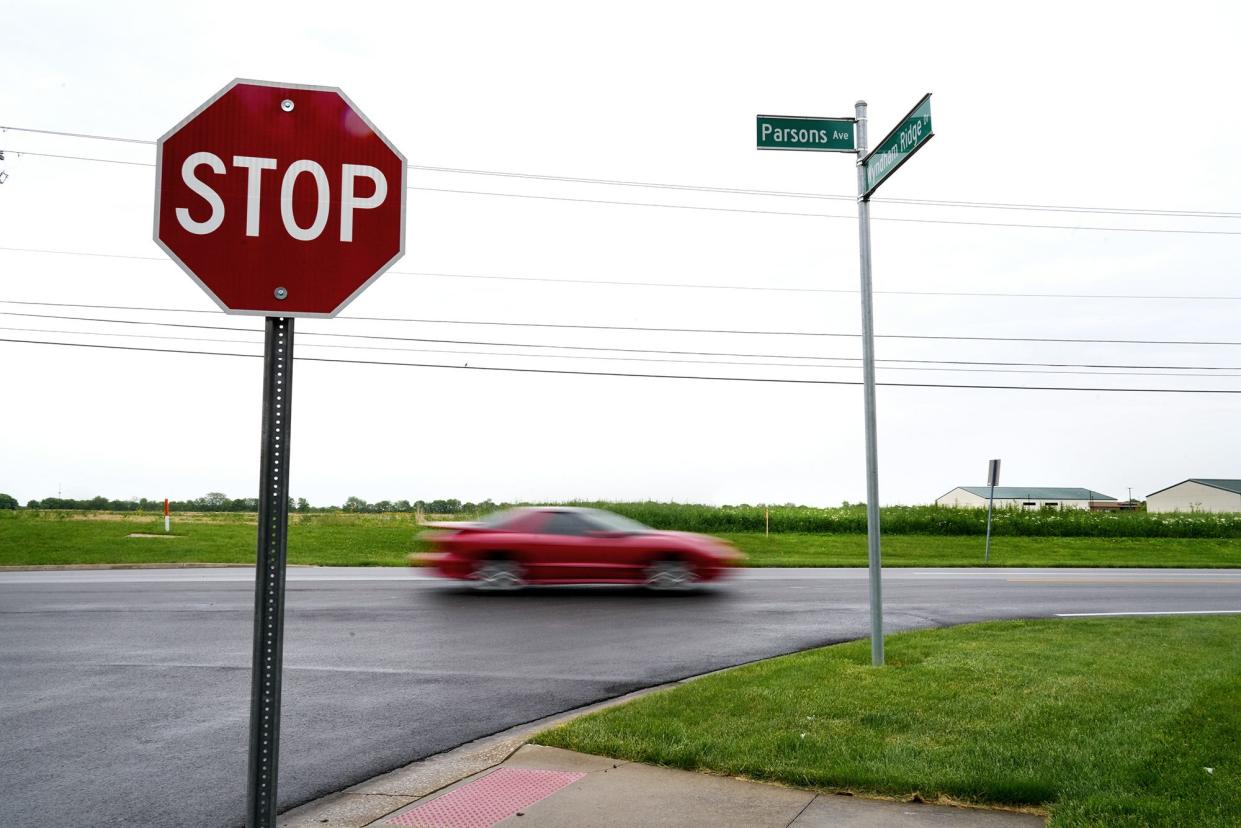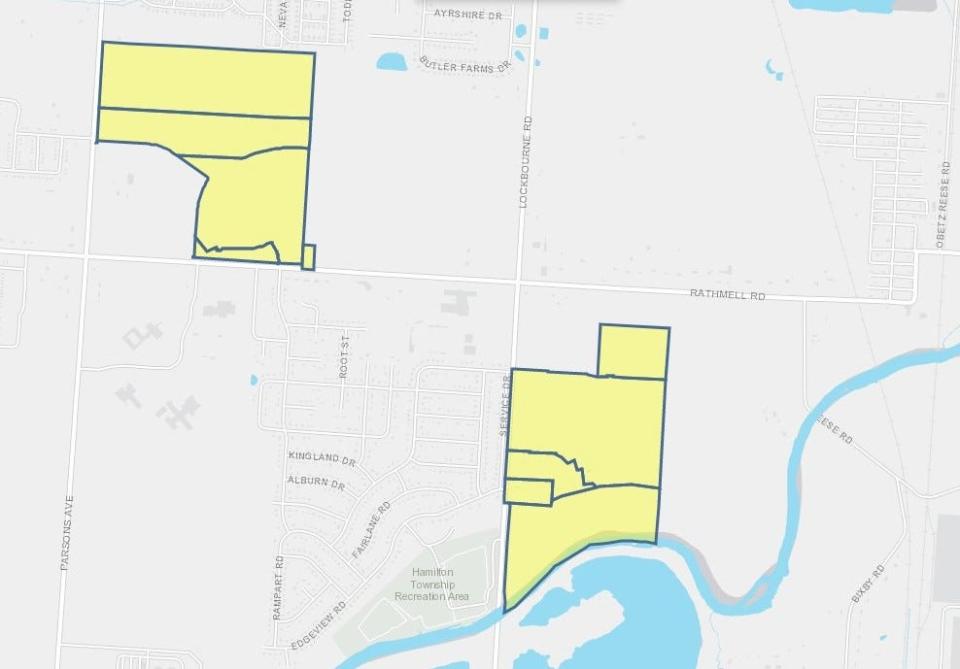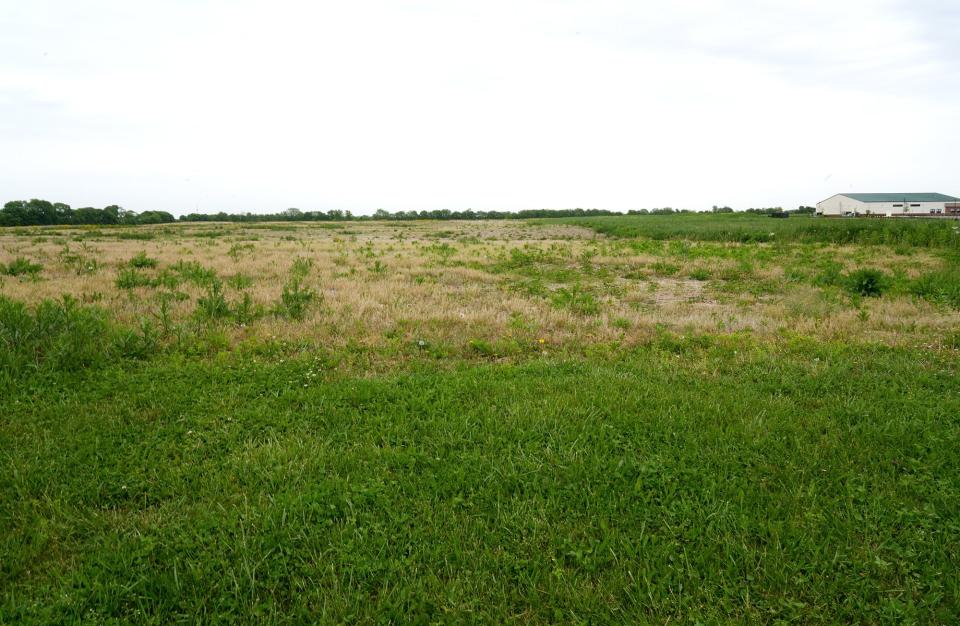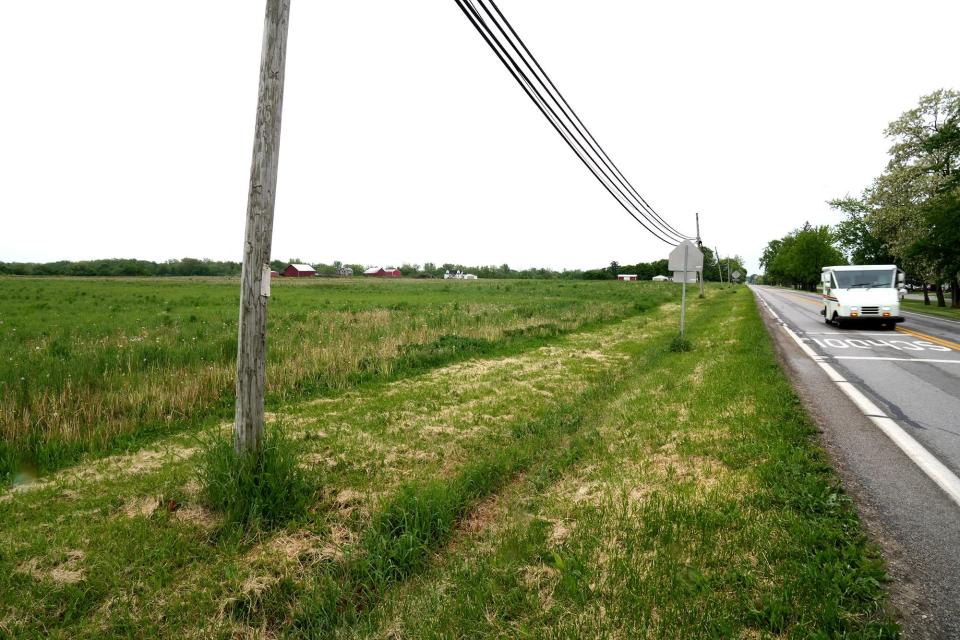Obetz wants to offer tax incentives for housing; Franklin County says it will hurt social services

The city of Obetz wants to give a developer tax increment finance incentives to build what city officials say is much-needed housing there.
But Franklin County officials oppose the measure, saying that doing so would take away tax revenue from county social service agencies that provide services to those who would live there.
The county Board of Commissioners unanimously voted May 10 to oppose the creation of two tax increment financing districts, or TIFs, for two large residential developments in the city proposed on about 400 acres — some of which the city owns. One would be about 420 new single-family homes worth a total $188.1 million, and the other about 250 new single-family homes worth a total $97.6 million, according to documents filed with the county.
Tax increment financing districts: Hilliard to Norwich: Police services, TIF support wanted in negotiation
The first TIF district is on the east side of Parsons Avenue, north of Wyndham Ridge Drive, northeast of Leave A Mark Church, 4818 Parsons Ave. The second TIF is on the east side of Lockbourne Road, across from Hamilton Township Park, 5333 Lockbourne Rd., and north to Secrest Avenue.

What are TIF districts, and how do they work?
TIF districts are special tax zones that allow municipalities to use part or all of the increase in property taxes generated as the result of development — known as increments — for public infrastructure projects within those areas for a set period of time.
While property owners within the district continue to pay taxes, that money does not go toward the various tax entities' levies but rather toward supporting certain public infrastructure projects. In this case, those projects include public roads; water, sewer, power and natural gas lines; and dedicated public spaces, including parks and other amenities.

TIF agreements usually apply to all taxes, not just those the municipality collects. In other words, other taxing entities generally lose out on their shares of the tax revenue they would have collected had it not been for the TIF district. Under the Obetz proposal, however, the Hamilton Local and Eastland-Fairfield Career Center Joint Vocational school districts would still get payments equal to their shares of property taxes.
Franklin County housing crisis: New residential development aims to fix Columbus area's housing crisis
The city wants to withhold 100% of the tax increments for 30 years, according to a memo that Stacey Boumis, Obetz's community services director, sent to the county commissioners.
"We believe this project is in the best interests of the City, and that it will benefit the entire community, including the School District," Boumis wrote.
Home prices in the Greater Columbus area: Monthly cost to buy typical Franklin County home rises 58% over past year
Under Ohio law, the county had 30 days to object to the proposed TIF district and may also object to TIFs that are for more than 10 years or more than 75% of the increment.
The county's opposition does not come as a surprise to Obetz officials, who say they expected commissioners to object.
"It's responsible governance on their part," Obetz City Administrator Rod Davisson said.
The Obetz City Council is set to vote on the TIF proposal June 13.
What happens now that Franklin County objected to Obetz's proposal?
Because the county opposes Obetz's TIF proposal, the county may negotiate an agreement with the municipality to send part of the increment back to county agencies.
"Now we sit down and say, 'OK, how much do you need?'" Davisson said.
If no agreement is reached, state law allows the county to collect no more than half the taxes it normally would for years 11 to 30 of the TIF.
Because the 400-acre property where the housing would be developed comprises old farmland, "the underlying value is really very low, which means the improvement value … is going to be very large" — roughly $40,000 a year, Davisson said.
Housing projects in Greater Columbus: Residential development, particularly for seniors, continues in growing Northland area
TIFs usually apply to all taxes, not just those the municipality collects, and other entities often lose out on their shares of tax revenue. Under this proposal, however, the Hamilton Localand Eastland-Fairfield Career Center Joint Vocationalschool districts would still get payments equal to their shares of property taxes.
While county social service agencies don't object to TIF districts to help support commercial developments, they have concerns when it comes to residential developments because the people who live there may need help from those agencies, Jim Schimmer, the county economic and development director, said in a memo to commissioners.
"It has traditionally been the view of the agencies that a portion of the new funds generated by their levies should support the services they provide for those individuals that live in the newly established residential TIF," Schimmer said.

In Franklin County, such agencies include Children's Services; Alcohol, Drug and Mental Health (ADAMH); the Board of Developmental Disabilities; and Senior Options, Schimmer said.
Housing developers seeking more tax incentives in Franklin County
This is not the first time county commissioners have objected to using TIF tax breaks for residential developments. In October, they objected to TIF agreements that the city of Columbus offered the developers of three planned residential projects.
Since 2012, the county commissioners have objected to 10 residential TIF agreements, subsequently securing a share of the taxes generated from increased property valuations for use by county social service agencies.
Emanuel Torres, the county's assistant director of economic development who presented the resolution to the commissioners at their May 10 meeting, said he didn't know how much tax revenue the county would lose if the Obetz TIFs were approved without a county challenge, directing a Dispatch reporter to the Franklin County Auditor's Office.
Timmy Siverd, constituent services manager for the Auditor's Office, said the office could not determine how much property tax revenue the county would forgo under the proposed Obetz TIF until the city actually creates it.
"It would be so speculative that I don't know that anything we could calculate from that would be workable," Siverd said. "We don't have enough information to say with any level of accuracy."
Contact Nathaniel Shuda at (614) 245-0319 or nshuda@dispatch.com.
Follow him on Twitter at @NathanielShuda or Facebook at facebook.com/NathanielShuda.
Get more political analysis by listening to the Ohio Politics Explained podcast
This article originally appeared on The Columbus Dispatch: Franklin County opposes tax incentives for Obetz housing developments

